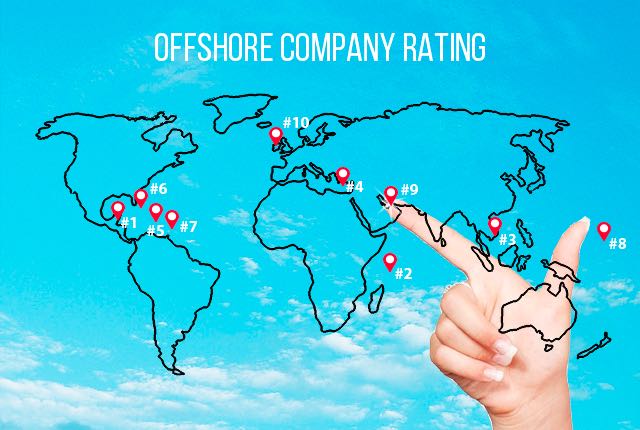Offshore Company Formation Fundamentals: Legal Framework and Best Practices
Wiki Article
Offshore Firm Development Demystified: Secret Considerations and Ideal Practices
Navigating the intricacies of overseas company development needs an eager understanding of different factors that can considerably influence the success and legitimacy of such ventures. From picking the proper legal territory to diligently assessing the tax effects, each step holds vital relevance while doing so. Corporate structuring, conformity with governing needs, and mindful factor to consider of banking and monetary aspects are all key components that require thoughtful consideration. As the ins and outs of developing an offshore company unfold, a strategic method assisted by finest practices becomes extremely important in making certain a lawfully sound and smooth procedure.Legal Jurisdiction Selection
Selecting the ideal lawful territory is an essential decision when developing an offshore firm, as it substantially impacts the governing framework within which the entity will certainly operate. Various jurisdictions use varying levels of tax performance, regulative demands, privacy securities, and political security. The selection of jurisdiction need to align with the certain goals and requirements of the overseas company.
Furthermore, the regulatory setting of a territory is critical. Some territories have rigorous financial guidelines and conformity requirements, which can be burdensome for specific kinds of organizations. On the other hand, even more lax governing atmospheres may supply flexibility however might additionally pose risks in regards to reputation and legitimacy.
Tax Ramifications Evaluation
Thinking about the tax obligation effects is an essential aspect of establishing an offshore company as it straight affects the financial structure and operational methods of the entity. One of the main factors companies opt for offshore business formation is to benefit from desirable tax obligation regimens. Working closely with tax advisors or experts who specialize in worldwide tax obligation issues can provide important understandings and guidance in structuring the offshore company in a tax-efficient way.Company Structure Planning
Effective business structure planning plays a pivotal duty in the successful establishment and procedure of an offshore company. One usual approach is to establish a holding business in a jurisdiction with positive tax obligation legislations to hold the assets of the operating firm, which may be located in a different territory for operational functions.
Additionally, the option of company structure, whether it be a limited liability business, a firm, or a count on, can substantially influence the total success of the overseas venture. By their website very carefully planning the company read what he said structure, overseas firms can boost their operational efficiency, safeguard their properties, and optimize their tax obligation responsibilities.
Conformity and Regulatory Demands
What are the key compliance and governing demands connected with developing and running an offshore business? When establishing an offshore firm, it is important to abide by the governing structures of both the offshore jurisdiction and the home country of the firm proprietors. Usual conformity demands include the entry of annual monetary statements, keeping appropriate accounting documents, and carrying out normal board conferences. Additionally, overseas companies commonly need to select neighborhood directors or a registered representative to make sure compliance with local legislations.Moreover, understanding and complying with worldwide guidelines, such as anti-money laundering (AML) and understand your consumer (KYC) demands, are vital for offshore firms to prevent illegal activities. Due persistance in validating the identifications of beneficial proprietors and making certain transparency in service procedures are critical components of governing conformity.
To navigate these intricacies efficiently, involving with legal and financial specialists with proficiency in offshore guidelines is extremely recommended. Staying updated on changing regulative landscapes and proactively attending to conformity issues can assist overseas companies run legitimately and fairly while maximizing their business potential.
Banking and Financial Factors To Consider
When developing an offshore firm, mindful attention to banking and economic considerations is critical for making sure functional efficiency and regulatory conformity. Discover More Here Offshore firms commonly select financial institutions in jurisdictions understood for their stability, financial infrastructure, and beneficial regulations.Additionally, comprehending the banking guidelines in both the offshore jurisdiction and the home nation is important to stay clear of any type of legal problems. Some offshore jurisdictions have strict banking privacy legislations, which might influence the flow of details in between the firm, its shareholders, and the bank. Compliance with anti-money laundering (AML) and recognize your client (KYC) guidelines is additionally critical to prevent financial crimes and keep a great standing with governing authorities. By very carefully browsing the financial and financial landscape, offshore firms can establish a solid financial structure for their procedures.

Conclusion
Finally, offshore business development entails cautious consideration of lawful jurisdiction, tax obligation ramifications, corporate framework, compliance, and banking considerations. By dealing with these vital variables and complying with ideal practices, companies can develop overseas entities efficiently. It is vital to abide by regulatory needs and ensure financial openness to keep trustworthiness and alleviate threats. Generally, extensive preparation and adherence to economic and lawful guidelines are critical for a successful offshore firm development procedure.Thinking about the tax effects is a fundamental element of establishing an overseas company as it directly affects the economic structure and functional strategies of the entity. Functioning carefully with tax obligation consultants or consultants who specialize in international tax matters can offer beneficial understandings and assistance in structuring the overseas business in a tax-efficient fashion. One common method is to develop a holding company in a territory with beneficial tax obligation legislations to hold the possessions of the operating company, which may be found in a various territory for functional purposes. When setting up an offshore company, it is essential to adhere to the governing structures of both the overseas jurisdiction and the home country of the company proprietors.In conclusion, offshore firm formation includes careful factor to consider of lawful territory, tax ramifications, company framework, conformity, and financial factors to consider.
Report this wiki page